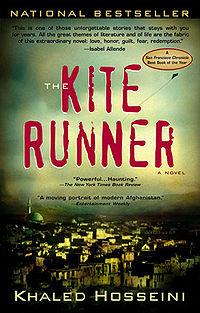
The most powerful line in the Khaled Hosseini’s “The Kite Runner” is this: “And that, I believe, is what true redemption is, Amir jan, when guilt leads to good.”
My regrets are different from the narrator of “The Kite Runner.” I didn’t watch my friend get raped because I was too afraid of standing up to the bully. But I’m very aware of the holes in my heart from those times I didn’t do the right thing.
Out of fear.
Out of selfishness.
Out of desperation.
Out of loneliness.
Last weekend, when I was knee deep into the pee pool (kids’ pool), an 18-month-old fell over into the pool from the side, and he wasn’t wearing any floaties to keep him buoyant. His dad spotted him face down in the pool and was on his way to scoop him up, but I was there, so I quickly snatched the boy and patted his back to get the water out. As I held him, I felt a huge sigh of relief … and I knew it had something to do with the guilt I still feel about Will, the toddler that almost drowned under my care five years ago when two-year-old David pushed him into the frigid waters of the city dock.
“Thank you,” the boy’s father said to me as he took his toddler back from my arms.
“A moment of redemption,” I said to him. And we laughed.
Turning guilt into good was what a fellow classmate was doing when he told the student body at a recent awards ceremony that you never know when a loved one will be taken from you, so always say “I love you” when leaving the house. Never leave a squabble unsettled.
Why would he say that?
He and his father had been arguing one afternoon, when my classmate stormed out of his house in a fit of rage, using language not included in Webster’s dictionary. His father, a pilot, crashed several hours later and was killed.
In the last few days, especially, I’ve been trying to turn guilt into good.
A friend of mine is tip-toeing down a dangerous path that has been the source of immense suffering for me. I can’t go back and undo the damage that’s been done in my life. It’s too late. But I can warn her about the risk she is taking, and share the very painful lesson I learned from my mistake. And when I do … when I try to turn my guilt into good … I am relieved of some of the weight I lug around with me and experience a kind of forgiveness that’s unspoken.
I guess you could say it’s a kind of redemption.
To read more Beyond Blue, go to http://blog.beliefnet.com/beyondblue, and to get to Group Beyond Blue, a support group at Beliefnet Community, click here.
To subscribe to “Beyond Blue” click here.
![]()

